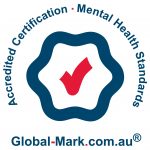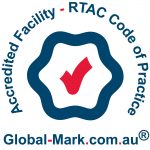Overview
Global-Mark provides certification in a number of health programs within Australia and Internationally. We have a skilled and experienced team which includes registered nurses, embryologists and general practitioners, to support our growing number of clients in areas such as National Safety and Quality Health Service Standards, National Standards for Mental Health Services, General Practice Accreditation, and Reproductive Technology.
Scheme
Accredited Locum Agency Program – Medical Locum Agency
In July 2008 the Minister for Health announced the NSW Health Standards and Conditions for the Provision of Locum Medical Officers to the NSW Health Services. During the introductory period between October 2008 and August 2009, NSW Health has required medical locum agencies to conduct a self assessment against the standards and conditions and to register with NSW Health. As at the 17th August 2009 all medical locum agencies are required to demonstrate compliance with the standards and conditions through a third party audit process to remain on the NSW Health Register of Medical Locum Agencies.
The key business objectives of NSW Health in utilising medical locum agencies to provide locum medical Officers to NSW Health Services are to:
(i) maximise the effectiveness and efficiency of locum medical officer placement and management;
(ii) ensure locum medical officers are appropriately qualified, fit for duty and suitable for roles they will perform;
(iii) ensure medical locum agencies maintain agreed levels of customer service; and
(iv) achieve value for money.
To meet these objectives medical locum agencies must demonstrate a satisfactory level of compliance, with supporting evidence, against all the NSW Health standards and conditions. The guidelines provide a description of evidence that would support a claim of compliance. However, the suggested evidence should be read as a guide to assist in the process and should not be considered a minimum requirement to meet full compliance for each standard and condition.
Click here to view the Medical Locum Agency Audit Guidelines

General Practice Accreditation Program
The Royal Australian College of General Practitioners (RACGP) Standards for General Practices provide a template for quality care and risk management in Australian general practice. The standards are designed to keep Australian general practice at the forefront of safe, high quality primary healthcare delivery in Australia. The standards have evolved with the changing landscape of Australian healthcare and reflect contemporary practice. The standards provide a framework for the continuing development of well performing practice teams to enable them to focus on quality care and risk management. Achieving independent accreditation against the standards shows patients that your practice is serious about providing high quality, safe and effective care to standards of excellence determined by the general practice profession.
General Practice Accreditation is a voluntary scheme in Australia; however a general practice must be accredited in order to participate in the Practice Incentives Program (PIP), or wanting to become a training provider in the Australian General Practice Training Program. The accreditation cycle is three years which means once a general practice has achieved accreditation, the accreditation remains valid for the remainder of a three-year cycle. Practices are assessed against the Royal Australian College of General Practitioners Standards for general practices, currently in its 5th edition.
A general practice surveyor team is comprised of at least two surveyors, one of whom must be an appropriately qualified GP surveyor and one of whom must be an appropriately qualified nurse, practice manager, allied health professional or Aboriginal and Torres Strait Islander health worker/health practitioner with relevant experience in general practice.
Click here to view the Royal Australian College of General Practitioners Standards
To Enquire or get a Quote please fill in this form.
National Safety and Quality Health Service Standards
The National Safety and Quality Health Service Standards (NSQHSS) were developed by the Australian Commission on Safety and Quality in Health Care in consultation and collaboration with jurisdictions, the private sector, health professionals and patients and endorsed by Australian health ministers in November 2010. Accreditation to the NSQHSS has been mandatory for all Australian hospitals and day procedure services since 2013. The second edition of the NSQHS Standards was endorsed by Health Ministers in June 2017, released in November 2017 and updated in May 2021.
How can we support you?
Global-Mark has been approved by the Australian Commission on Safety and Quality in Health Care to assess the National Safety and Quality Health Service Standards (NSQHSS) since 2013. We have a team that has extensive clinical experience in a variety of health settings including peri-operative, day surgery, rehabilitation, medical, surgery, fertility, obstetrics, and mental health. Over 300 NSQHSS certificates have been issued for day surgery and private hospitals in every state and territory for both corporate and independent health services.
Click here to view the National Safety and Quality Health Service Standards and for further information

National Standards for Mental Health Services
These standards have been developed to be applied across the broad range of mental health services. This includes bed based and community mental health services, those in the clinical and non-government sectors, those in the private sector and also those in primary care and general practice. They are not intended to apply to services where mental health is not the main focus of care, such as generic community services which support people with a range of disabilities, or generic aged care services. Other practice frameworks are more appropriately applied in those settings. However, when assessing the performance of a mental health service against the standards, it will be necessary to do this within the context of the individual mental health service type and setting.
Consideration of the standards should also be incorporated into the delivery of services such as indigenous health services, alcohol tobacco and other drug services and aged care services, where they are responsible for the delivery of mental health care within the service. Across the health and community sectors, service delivery is influenced by a number of different quality, safety and performance frameworks. The standards represent only one component of this environment which includes specific state and sector legislation, associated regulation, professional regulation, accreditation and employment conditions, purchasing and funding agreements, government policy, service development and accreditation. All of these contribute to and affect the achievement of standards. It is anticipated that the standards will be incorporated into the relevant service accreditation programs.
Key principles that have informed the development of the standards include:
(i) mental health services should promote an optimal quality of life for people with mental health problems and/or mental illness;
(ii) services are delivered with the aim of facilitating sustained recovery;
(iii) consumers should be involved in all decisions regarding their treatment and care, and as far as possible, the opportunity to choose their treatment and setting;
(iv) consumers have the right to have their nominated carer(s) involved in all aspects of their care;
(v) the role played by carers, as well as their capacity, needs and requirements as separate from those of consumers is recognised;
(vi) participation by consumers and carers is integral to the development, planning, delivery and evaluation of mental health services;
(vii) mental health treatment, care and support should be tailored to meet the specific needs of the individual consumer; and
(viii) mental health treatment and support should impose the least personal restriction on the rights and choices of consumers taking account of their living situation, level of support within the community and the needs of their carer(s).
Click here to view the National Standards for Mental Health Services

Reproductive Technology Accreditation
The Code of Practice for Assisted Reproductive Technology (ART) Units has been developed by the Reproductive Technology Accreditation Committee (RTAC) of the Fertility Society of Australia (FSA). The purpose of the RTAC Code of Practice is to:
(i) promote continuous improvement in the quality of care offered to people accessing fertility treatment;
(ii) provide a framework and set criteria for the auditing process that leads to accreditation of organisations that deliver fertility services; and
(iii) to ensure the auditing process is carried out in an independent, non-adversarial and constructive manner.
Fundamental to the delivery of ART services is that patients and their offspring remain the most important consideration in all decisions. Organisations aspire to deliver services in a manner that recognises patients’ cultural and individual values and beliefs, upholds their dignity and privacy, and acknowledges the rights of children born through ART to know their genetic origins and health outcomes. An ART organisation’s compliance with the RTAC Code of Practice must be reviewed on a regular basis. An ART organisation includes associations, agencies, groups, independent practitioners and individuals accountable for the delivery of services to the patient.
RTAC – Fertility Society of Australia


Trauma Recovery Programme Standards
The Trauma Recovery Programme (TRP) standards provide a framework for improving the quality of services to veterans. They draw upon best-practice evidence presented in the Australian Guidelines for the Treatment of Acute Stress Disorder and Posttraumatic Stress Disorder and are adapted for group-based PTSD treatment programmes. Treatment components specified in the TRP standards are based on evidence-based interventions for PTSD and its common comorbidities. The TRP standards prioritise individual trauma-focused therapy as the cornerstone of the programme’s treatment. Six TRP standards address key components of a quality service:
(i) clinical governance;
(ii) access and targeting;
(iii) Veteran’s rights and providers’ responsibilities;
(iv) clinical pathways;
(v) treatment; and
(vi) clinical data collection.
The TRP standards are aligned with the current National Standards for Mental Health Services (NSMHS). The Australian Commission on Safety and Quality in Health Care has indicated that version 2 of the National Safety and Quality Health Service Standards will incorporate the key safety elements of the NSMHS.
Click here to view the National Accreditation Standards for Trauma Recovery Programmes




